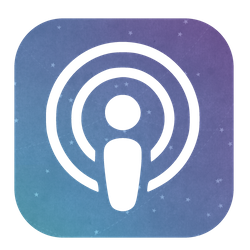episode 16
Your Copywriting is NOT the Problem
Trying to find the “right” or “perfect” words for your own website can distract you from moving forward with your web design business. That’s when you know that your copywriting has too much power over you.
Today Sam & Karyn discuss copywriting for web designers, when it’s helpful for your business and when it’s stopping your from taking action.
Episode 16: Your Copywriting is NOT the Problem
Show Notes:




Why 1:1 businesses naturally need less upfront sales language than 1:many business models.
Episode Transcript:
Karyn Paige, Sam Munoz
Sam Munoz 00:00
So women are definitely thinking that the copywriting The words are the blocker, right? They’re thinking that that is the reason that maybe they’re not seeing the success that they’re looking for in their business. So certainly, if you are listening to this, and you were like, I have put so much power into the copywriting, you know, the words on my website, the words on my social media, etc. This episode is definitely for you. And to Karyn’s point about like, if this is a gift for you, then it might not hold that same power, right? Because you’re already comfortable with the words you know, you probably keep it kind of brief, it’s got your flair, that’s great. But if you’re thinking, I feel like I can’t make money in my business, I can’t book any clients. I can’t launch my website or remove the coming soon page off of my website because the words are stopping me. And I don’t know what to say. And I don’t want to appear like an amateur and I’m going to overcompensate and all these different things that we do with copywriting. I can’t do x until the copywriting is done. That’s what we’re talking about today. Welcome to making website magic where we empower women to step boldly into their web design businesses follow their intuition and claim the success they’re worthy of. I’m Sam Munoz.
Karyn Paige 01:11
And I’m Karyn page, where the tech wizards behind Sam Munoz consulting on the making website Magic School of Business. We’re two women here to talk about what it actually takes to run a web design business that’s aligned with your vision.
Sam Munoz 01:24
Spoiler alert, it probably isn’t what you think it is ready to hear about everything from refining your business vision, networking with intention and creating a magical client experience. Let’s do it. Why hello there, Karyn. How are you doing today?
Karyn Paige 01:43
Sarah? Hello. I’m doing really, really good. Again, I’m like super galvanized and ready to dive into this conversation because it’s actually one of my favorite things to talk about.
Sam Munoz 01:54
Yes, so we like plan our episodes ahead of time. And typically right before the episode we finalize our thoughts, get our outline going. And we can always tell when the episode is going to be really exciting and fiery when we are just typing down notes and notes and notes and where you have to stop ourselves. And this is one of those episodes today. Because we’re talking about how copywriting is not the problem. It’s not the thing that’s preventing you from success in your business. But before we do that, we want to read a review. Go ahead, Karyn, take it away.
Karyn Paige 02:27
Okay, so this awesome review says, I’m so excited for this podcast. I’ve known Sam for several years. And I’m always inspired by the insights she brings into this entrepreneurial journey. She and Karyn are taking on deprogramming toxic norms in the tech and online entrepreneur industry that ultimately impact women in all spaces. I am so here for that less, they are fun and engaging to listen to whether you build websites or just have a website, definitely check this podcast out. So yeah,
Sam Munoz 03:03
so speaking of deprogramming from that review, that is definitely definitely something we are talking about in today’s episode, because I think that there is this huge idea that copywriting is the Savior for your business. And as usual, ladies, this is a case of the business model, right. And I just want to start by saying this isn’t about shaming. This is really about opening your eyes to another perspective, which is something that I hope we do on this podcast in general, it’s always to say, Hey, this is something that you might have been told. But also there’s another way, there’s like 10 other ways, and you get to decide which is the right way for you. But as always, we should start off by mentioning why we’re talking about this topic in the first place.
Karyn Paige 03:46
This is something we see a lot, a lot. Now. Again, a total caveat, right? Like if you enjoy copywriting and it’s fun for you, it brings you joy, like it’s a gift for you, then it might not be like as impactful. Right? But this is really for the woman who is thinking that the words are the issue right that are preventing her from like taking success or having success in our business. But here’s the thing, we see this a lot like on several many websites for women who are web designers, right? We see this a lot on Instagram, we see this obstacle of either don’t know what to say, or I need to hire somebody or like that’s the thing. That’s the thing. That’s the thing.
Sam Munoz 04:27
So women are definitely thinking that the copywriting The words are the blocker, right? They’re thinking that that is the reason that maybe they’re not seeing the success that they’re looking for in their business. So certainly if you are listening to this and you are like I have put so much power into the copywriting you know the words on my website, the words on my social media, etc. This episode is definitely for you. And to Karyn’s point about like, if this is a gift for you, then it might not hold that same power, right because you’re already comfortable with the words you know, you probably keep it kind of brief. It’s got Your flare, that’s great. But if you’re thinking, I feel like I can’t make money in my business, I can’t book any clients, I can’t launch my website or remove the coming soon page off of my website because the words are stopping me. And I don’t know what to say. And I don’t want to appear like an amateur and I’m going to overcompensate and all these different things that we do with copywriting, I can’t do x until the copywriting is done. That’s what we’re talking about today
Karyn Paige 05:25
that I can’t do x until the copywriting is done, I can’t take coming soon face down, I can’t start posting on social media, I can’t start inviting people to discovery calls, I can’t start even talking to people in coffee chats until the copywriting is done. That’s a lot of power.
Sam Munoz 05:40
It’s so much power. And you said it like five times I can’t start Yeah, like that is that’s huge. If you feel blocked by the words that’s stopping you, you can’t start, you can’t start doing all the things that we talked about in the podcast. And you know, we mentioned on social media, right? Like, that’s a huge blocker. Because if you there’s a lot of things in our business that we feel like they have to be perfect before we get it out there. And they stop us from moving forward, when in reality, like what you said, Karyn, we’re just giving those things power over us. And so today, we are going to reclaim that power. And we’re going to talk about why copywriting is not the problem. And let’s let’s just dive into the things we want to talk about.
Karyn Paige 06:20
Okay, so why is copywriting not the problem?
Sam Munoz 06:24
I feel like the first and to me, this feels the most obvious, it’s that the people that want to hire us to build websites to design websites to develop websites, they’re looking for the results of that work, and the quality of our portfolio and of our sample projects and the work that you’d like the service that we’re providing not the language on our website, necessarily. Now, that’s not to say that, you know, you shouldn’t spell check, and you shouldn’t use it proper grammar. But if I’m going to hire someone to take care of my lawn, I’m not so interested in how much they convinced me on their page that I should work with them. I actually would like to see pictures of like before and after, or I want to know what their customer services like I want to know the price point like I want to get right to the info. And that is the experience that a visitor is looking for when they’re entering your website to hire you for your work.
Karyn Paige 07:14
Yes, yes, yes, yes, yes, yes, the imagery, I think is a big thing. Like sometimes we feel like we need to have a lot of a language on our website in order to convince people that we’re good at what we do, when oftentimes a simple like portfolio sample or in a screenshot or something like that, showing the result of the work that you have done is actually going to help somebody make a buying decision, right?
Sam Munoz 07:40
Honestly, thinking about this whole lawn care thing has me thinking about other industries that are kind of similar in the sense of like, why we’re hired and how that hiring process goes. I’m thinking I don’t know why about like hiring someone to make a cake for you. And would you rather go on their website and be like landing on this huge sales page that scrolls for like 50 hours and you’re looking for the I just want to buy the frickin cake button and get on the phone with you and tell you what I want and see pictures of your beautiful cakes and read testimonials of the people that are like this cake is the most delicious thing I put in my mouth. That’s the kind of website and that’s the kind of like simple copywriting we need right? Like nobody needs to sit here convincing and justifying that work needs to speak for itself. And that’s the same I love those quote unquote real world examples because it’s just it becomes very clear that that’s not the type of wording we need.
Karyn Paige 08:31
Yes. And you know, I love love love bringing in like correlations from other industries. Yeah, I love I love talking about food. I love a food analogy. I love a fashion analogy. I love a hair analogy, right? It’s like, again, my hairdresser. She cuts hair for women like curly hair. That’s what she specializes in. And on her website, it’s just photo after photo after photo of different lengths, and curl patterns and textures. And so it’s like without a doubt, that’s the person that I want to work with. And then when you go to her services page, it’s like she’s got three haircuts tight and short, long and wavy or like mid length and like kind of coyly Which one are you boom book. It’s like so simple, effortless, and and there isn’t a lot of copy. Right? So again, it’s like you’re trying to sell something that has a very clear obvious result that can be displayed you actually don’t need as much copy as you think you need right so it’s that less is more
Sam Munoz 09:29
and also I do think that it comes from you know, this desire to overcompensate and justify and convince maybe comes from a lack of confidence in what we’re offering, whether it be the pricing the packages, the process that we offer. Last episode, we talked about owning the space, if you don’t feel like you’re fully owning the space, you might end up saying 15,000 extra words just to basically get around to Hey, I develop websites because we’re overcompensating because we’re not being specific. I shared this with Karyn or Like I failed a writing class in college because I would be so verbose. And I was just like going on and on. And they’re like, get rid of all of this be concise. Because when you’re doing something technical, like you need to just be as specific as possible. And what we’re doing can sometimes be like that technical side. But also, more importantly, we just need to tell someone what we’re doing. And this is not to say that you need to like devoid your website of all personality. Not at all. But it does mean that you don’t have to have like, a five paragraph essay about, I don’t know, Karyn, what are the kinds of things that people are writing copy about on their website that just like literally could you just like cut all of this, if we’re thinking about your favorite Tim Gunn, he’s like,
Karyn Paige 10:43
okay, seven Leanback, I’m gonna put my finger up to my lip. Just like Tim Gunn. I’m seeing a lot of stuff, especially Okay, for example, like on us on a services page. Before I even get to the services like that maybe like two or three column section where you have like the packages, there’s at least five or six text blocks of a web designer, talking to the person and saying, Hey, I know you, business is hard, you need a website that’s going to do this for your business, bla, bla, bla, I got you. And then let’s talk about this. Like, you know, all of these things like I can relate to you, it’s a lot of like, I can relate to you, I see you I know what you need is is very interesting pattern. Because it’s like, it almost feels like it’s speaking to somebody who needs to be convinced that they’re, they need a website in the first place. Right. So it’s a lot of like convincing type of language,
Sam Munoz 11:38
which people are not going to your website, looking for your service, like on your services page, wanting to be convinced that they need a website in the first place, they are there to potentially hire you, I think we need to remember the mindset of the person that’s coming in, right, they are not trying to be convinced that they need a website, they are trying to decide if you are the right web designer or developer for them.
Karyn Paige 11:58
So I’m seeing a lot of that type of copy. And then I also see a lot of frequently asked questions or stuff where you kind of have to search around for things where it’s not really clear, like, hey, if I’m on your services page, and I’m trying to know how much something costs, it should be like big and bold, sometimes it gets buried, because maybe there’s a little bit of lack of confidence around the selling. So it’s like you’re trying, well, actually, it’s gonna cost maybe this amount. And you know, it’s, it’s kind of going to be different for everybody based on your needs. And you know, maybe if you feel like this is a right fit for you at this time, like scheduling a discovery call might be the best option for you. So I get it like you’re trying to make a big decision and an investment in your business. And that’s really scary. But I’m here for you to talk
Sam Munoz 12:49
when you’re ready. Totally Karyn Yes. And also, okay, this stuff that you’re saying, I think all of us can think like the whole, like, I hear you, I feel you, I have the solution for you, blah, blah, blah, that is all coming. We all know where that’s coming from right? That is coming from the people that are telling us we need long form sales pages, and long form conversion copy to convert someone into a paying customer. But that’s a completely different business model, that type of business model where you have a long form sales page, and it’s got you know, who is this for? Who is this not for things like that it really is intended for more passive business models. I know even for our mentorship, we have a landing page where someone goes to it and they can uncover the program details. And we really cut that down because we were like, We do not need this to be like some long thing. We just want to talk to people, we want to talk to them, see if we’re the right fit for them and then go from there. And that’s the same workflow that your potential customer will be going on. They want to get on that discovery call with you and understand if you’re the right web designer for them, right. And so if we have these long form sales pages, those are really intended for more automated businesses. You know, things like selling a course totally makes sense. We’re not at all saying that copywriting is not an awesome skill and definitely something to pay for for the right business model totally makes sense. But if we’re in the business of relationship building, and what we’re trying to do is get someone to get on a discovery call with us. The fastest way to do that is to just give them the link right to just like have it there super easy for them to see on your website and like cut all the extra noise that is convincing and justifying if you want to put something on your website like display your work.
Karyn Paige 14:34
Yes. Okay, so you set a whole lot right there like a whole lot of goodness. It’s just like, let me try to remember how I want to respond to this because there’s like three different things in there that you so are so good, right? Okay, so first first first, this is something about like you don’t want to like what did you say devoid your whole website of like anything yet? First. You should have words on your website, like we’re not some Sort of esoteric or pretentious New York art gallery where it doesn’t even have a sign out front, you don’t even know where if you’re stepping into the right place, like people who land on your website need to know what you do, who you serve, et cetera, right. Like in the previous episode, we talked about identity statements, it would be a good idea, and very helpful and very hospitable for you to have language that’s like, Hello, welcome. I’m a web developer who does this type of work for this type of industry or client. That’s enough, right there. That’s enough, get started book a call. Here’s my work. Here’s a little bit about me, like my values, my mission, why I do the type of work that I do. That’s enough, brief, concise, effective, maybe throw in like a little word that applies to you. Like, let’s go, y’all you know what I mean? Like, that’s how you infuse it with some personality. So you do need words, especially in terms of like guiding someone to book a call inviting them like making invitations, right. But we don’t need as much as you think then the other thing that you said, which I think really bears repeating, and deserves a little bit more time is the business bottle thing, right? Because I even feel like it’s the the long form automated copy that we are so used to even is like influencing us because it’s like, well, that’s what they’re doing. So that’s what I should be doing. Like we’ve all seen the sales pages where you scroll, and you scroll, and you scroll, and you look at 50 different testimonials, and it’s for you, it’s not for you. But we’re about the reason why that language is so verbose is because the person selling you something is never going to talk to you in person, and they’re trying to convince you to buy a one and done thing. And then they never talk to you. After you’ve purchased right. So again, it’s that one to many model versus what we do, which is one to one service providers. And and we see it in long form email marketing, and we see it in very long Instagram captions and things like that, where the whole reason why that language is so verbose is because no one ever plans on like actually talking to you. But we’re not in the business of not talking to the people that hire us. We talk to people, we make personal one on one connections. When we’re in the project, we’re constantly communicating one to one with our clients. So because of that, we don’t need as much upfront sales language.
Sam Munoz 17:28
So true, Karyn, yes. Because that’s not the goal. Like the goal of your website, we’ve talked about this on the podcast plenty of times before, the goal on your website is not to have someone add a web design package to their cart. And Checkout, the goal of your website is to have someone book a call with you so that you can or you know, however it contact you via your contact form, however you accept an inquiry so that you can create a proposal for them or give them their price point and give them the contract and all the things that you need to do because we’re running businesses that aren’t just add to cart, because the goal is not to convert them to pay money and check out right there without any interaction. We don’t need miles of sales copy to get them on the call. So it’s again, it’s it’s so interesting, because I think a lot of us know this for our clients like we can really help them. See, this is where you should put your calls to action. Like you don’t need this much wording here. You can keep it really brief. You know, this is the intention of this page, we’re thinking about the strategy. But I think that kind of goes out the window when we’re thinking about our own website, right? Hello, we did an entire episode on like being embarrassed of your own website. And so the important thing is, though, to remember why someone comes to our website in the first place, it’s because they want to hire us is because they’re interested in our services. It’s not because they need like, again, it’s not because they need to be convinced that they need a website. And it’s not because they need to check out before they exit your website, they just need to take some sort of step to enquire with you. However you do that in your business. It’s so so important. Again, we always say this. And I do think that repeating it is important, recognizing what your business model is, and figuring out if the tactic that you are interested in trying is actually in alignment with that business model. If it is great, try it. If it’s not, just be aware that the results might not be what you are expecting.
Karyn Paige 19:21
And like cut like a couple layers beneath that like when really start to like, pick it apart and tease it out. I feel like as women, we don’t always feel like we have the authority. Sometimes that can make us feel like well, if we just say the right thing, then we’ll win somebody over. If I just make them like me through my clever, flowery language on my website, then they will want to choose me and they will want to book that call because I’ve won them over right so there’s an element of like people pleasing in there and trying to be perfect and trying to be very likeable, right? Like, I know, we hear the whole the know, like and trust factor. So you’re trying to get them to know you and to like you and to trust you
Sam Munoz 20:10
What if we did that on the call with them where you can actually have someone know you like you and trust you? Do you think that there’s a part of us that is maybe afraid to get on the call, afraid to converse with someone one on one. So we’re hoping that by writing enough language that convinces them can we can avoid that, like, if they just you know, we can establish all those things, and then all they’re gonna want to do is pay us?
Karyn Paige 20:35
Yeah, but let’s, let’s think that one through a little bit farther, you still have to get on the call with them and talk through what they need for their website and create a strategy for how that’s going to work and ask them questions and that you have to give them space to ask you questions. So you can only front loads so much on your website through copy, to protect yourself from having to have conversations before it actually is not useful. And it’s too much. And it’s overwhelming people who are probably more likely to just get on the call, if it was just like, Hey, I just kind of work. Here’s an example, here’s a sample Do you want something like this for yourself, great book a call, click this button,
Sam Munoz 21:19
right, and we can’t avoid it forever, because if they hire us, we’re gonna have to talk to them. Because again, we’ve talked about this several times on the podcast, and in our magic minutes on Instagram, that a part of the business that we’re doing is talking to people because it’s not an automated business, it’s a one on one business from beginning to end, from the time when they’re, you know, discussing potentially working with you to actually doing the project to the offboarding to the referrals, like it’s all relationships based. And if we’re depending so much on this copy to do the work for us, I think that it’s missing that piece, that personal touch that is so imperative for this type of business. And again, we talked about this, I think when we were talking about email lists, and how it is lacking that personal connection is also lacking that specificity, right? It’s like when you send out a big email blast, and you’re like, just talking to the masses versus sending a personal email to someone where you can be more intentional about what you’re saying and cater it to them. copywriting is the same way because everybody’s reading, it’s not personal to the person that’s reading, it’s not I get updates with information about them. Whereas when you get on the call with them, you can have that more customized experience, which the whole reason this is important is because then you can charge more for your services, you can work with different people that you’re more in alignment with, like it is all in service of that.
Karyn Paige 22:41
I also like to offer up the idea of like, not relying so much or putting so much power on this idea of like, the know, like and trust and convincing somebody up front to like, like you because what if they can just know your work and like your work. And that’s how they trust you. I like that, you know, it’s like, again, when we think about business models and stuff. It’s like sometimes this there’s no like and trust factor that everybody likes to talk about in the automation and the one to many business models, a lot of those businesses are built on like personal brands, and like the person is what you’re buying into the personal brand is what is influencing you to make a purchase. Whereas for us as web designers, it’s like the work is what influences somebody to hire you the samples, the examples. And so I also feel like sometimes we’re using the language on our website to compensate for maybe the lack of examples and samples that we have, if we don’t have a very large portfolio, we have to we feel compelled to use language and copy that convinces someone like Hey, I know I don’t have a whole lot to show you. But I’m actually really good at what I do. And I know you I’m inside your head like I got you
Sam Munoz 23:56
too true, Karyn, that is that’s such a good point. I’m really, really glad that you brought that up. I think it would be important to kind of end cap this conversation with Okay, what do we do about this? Like, what do we do moving forward? If copywriting is not the problem and we want to take away the power from the copywriting feeling like it is the blocker? How do we move forward? And I definitely think one of the biggest things that you can do is focus on your talent, which are designing websites, if you’re a web developer, maybe it is fixing plugins and problem solving. And you can explain and display these things via case studies via a great portfolio like start showing off your work.
Karyn Paige 24:34
Yeah, show it don’t tell it keep it simple. And maybe think about if you really need some copy like where is that copy? Does it need to be in like convincing persuasive
Sam Munoz 24:45
language or maybe it’s the copy that exists in a case study for an example of your work or on your about page if you want to have them you know get to know you a little bit they’re like you can put time and energy into creating copy for that. If you wanted to. But also, I think that if someone’s listening to this, and to your point earlier about, like, they haven’t worked with anyone, so that’s why there may be overcompensating here is our encouragement to you go start creating some samples of your work. This can be an entire podcast episode. And we have it as an entire class in our mentorship about creating sample projects and building out your portfolio for the ideal client, or the ideal type of project that you want to be working on. But you don’t have to hide the fact that you might not have a bunch of experience with clients with all this extra language, you can create portfolio examples, show off that you know what you’re doing, who cares that it wasn’t, you know, quote, unquote, for a paying client, you’re still doing the work? What does that part matter? So show off that work. And so anytime you feel that drive of like, Oh, I just need to adjust the copy a little bit, put that creative energy girl into a great sample portfolio piece.
Karyn Paige 25:53
Yes, like if you’re afraid that you don’t appear as an authority in the space as an expert web designer, create something this is, oh, this right here is sample the shows that I know what I’m doing. Right? Because Real Talk true, authoritative figures. True. Experts don’t have to tell you that they’re an authority, they just show you and they show up owning the space, letting their work speak for itself. That’s like real authority. And that’s real expertise,
Sam Munoz 26:27
exactly that. And I do think that there’s some inner work that has to be done to in order to really feel we talked about this in the last episode, how confidence is like key with all of this. And maybe you’re lacking confidence, whether it be in your skills, or in your ability to get on sales calls, or whatever. So maybe there’s some inner work that has to be done to really move forward with that, and grow in that self confidence, right? Again, there’s ways to improve those things. And we talked about this in the mentorship, like having an action plan before you go into a discovery call will make you more confident, because you know what you’re going to say and you can drive that call and you can be the leader of it. practicing your skills via sample projects will improve your skills and will make you feel more confident in displaying network so you don’t feel like you have to bury it all under a bunch of stuff. Knowing what your pricing is, and why you’re pricing it that way. And knowing exactly what your packages are means that you don’t have to bury that investment dollar amount in a bunch of copy. So it kind of like the copywriting thing. It’s not only that it’s not the problem. And it’s not the thing that’s blocking you from doing success. But the over abundance of copy is smothering your success.
Karyn Paige 27:40
It’s that thing that we’ve talked about other episodes of the podcast where it’s building from the outside, in, like everything you just said is building from the inside out, it’s all all the elements are aligned, all the pieces are there. So when you just put them into place, it’s like you don’t even need the copy. There’s no space for the copy, because all of the other stuff is already there holding the space and doing the work for you in a way, right. It’s like, it’s like he spent all of this time thinking about your copywriting on your website. But then you don’t want to get on a call because you don’t know what to say. Because you haven’t spent any time thinking about that. Like you haven’t done the work to get all these other things in place. It’s like it were the focus has been on this one thing that actually is not even
Sam Munoz 28:24
it’s a very external thing. Yeah, it’s not the problem. Right? Exactly. copywriting is not the problem. So we hope you leave today’s episode understanding that man, I actually don’t need to be obsessing over my copywriting and maybe again, take that energy and put it into something that will fuel your business more and keep it simple, keep things easy and let the copywriting go for a bit. I love this idea of like, what if we just tabled this for later and we focus on things that might move us forward even more. You know, like we’d table things all the time.
Karyn Paige 28:58
We table things and also say okay, well if it if it didn’t have this one thing, what else could I do to achieve the thing that I need to do? Exactly how else can I achieve what I need to do without copywriting or an abundance and an overabundance of copywriting?
Sam Munoz 29:13
Exactly. So let go take away the power from copywriting and go forth and conquer that part
A Season of New Beginnings
Today Sam & Karyn make the bittersweet announcement to end the podcast as they step into a new season of life and business. They share what is to come for them, how you can stay connected to the Making Website Community and encourage you to be open to new opportunities, too.
Season 02 in Review
Today Sam & Karyn look back on season 02 of the podcast, celebrating successes in the mentorship, launching our free community, the future of the podcast and Making Website Magic at large.
People-Pleasing as a Web Designer & Developer
Today Sam & Karyn discuss people-pleasing, understanding that your business has needs and how to honor them in your client relationships.








